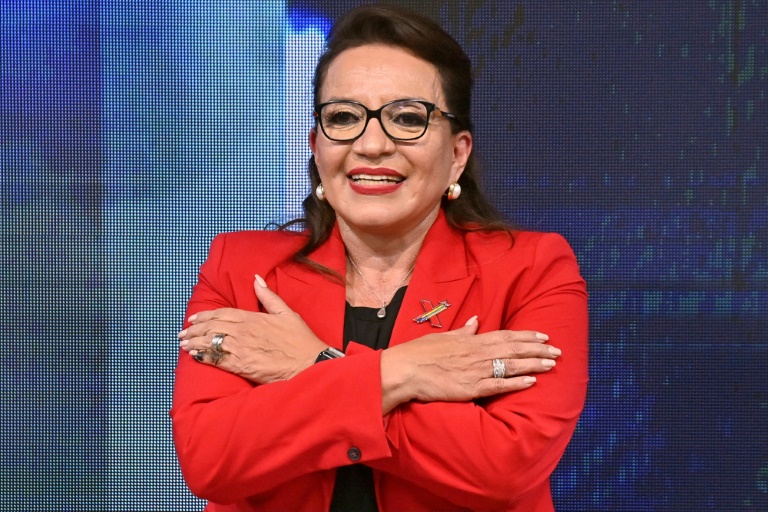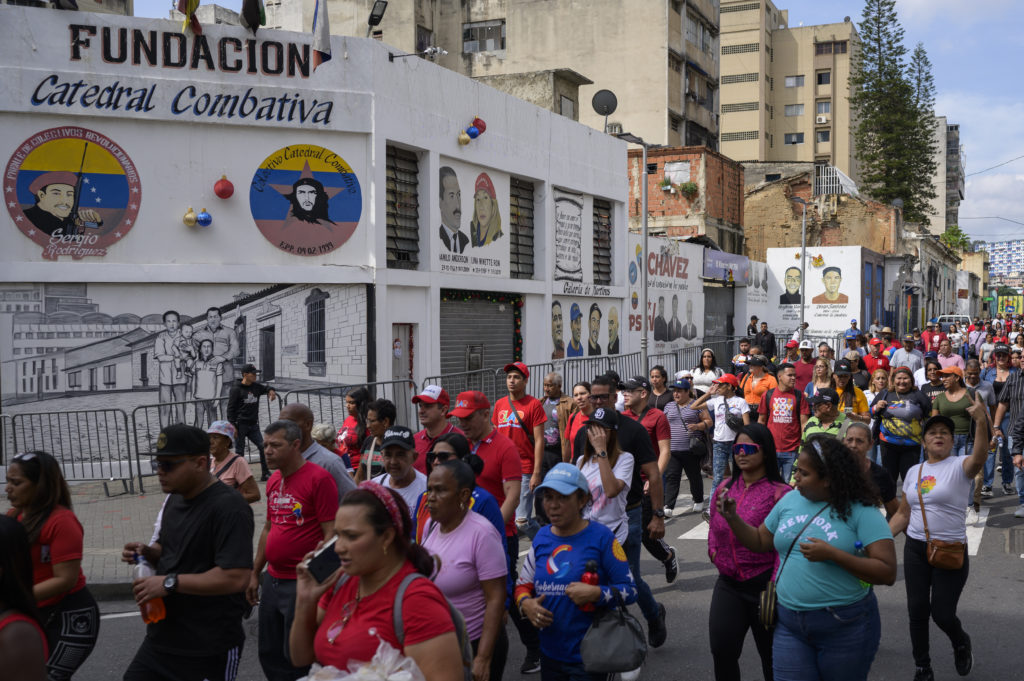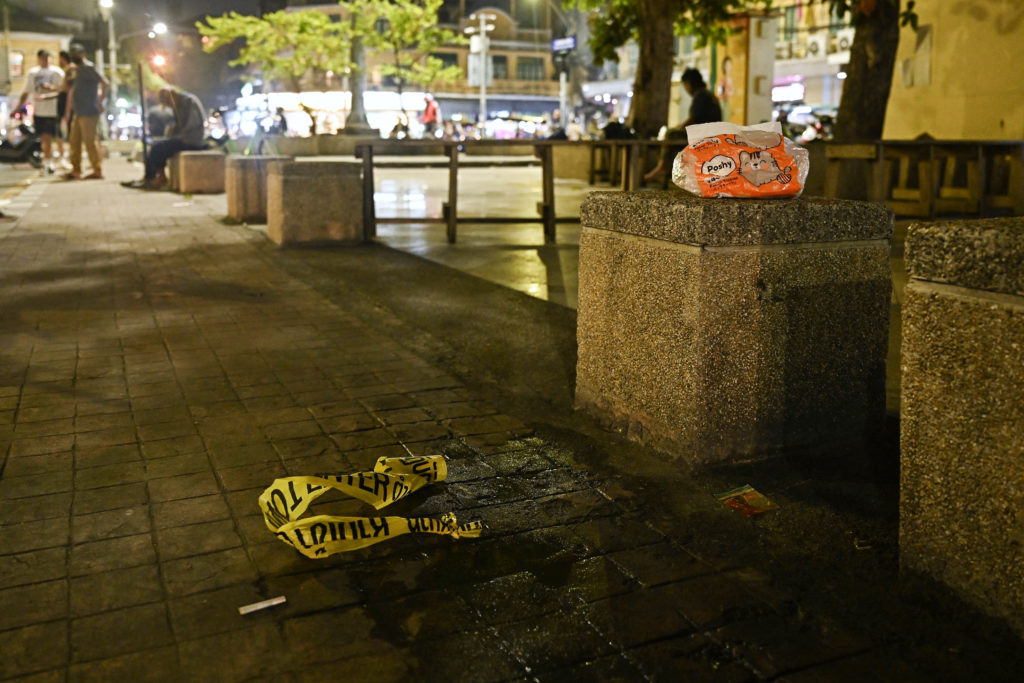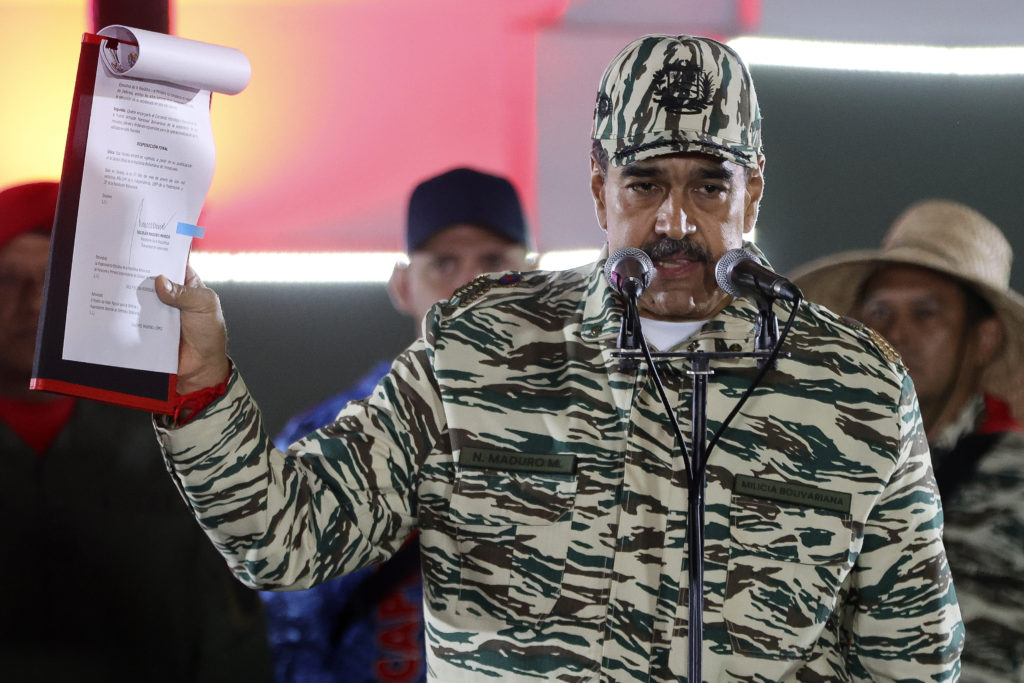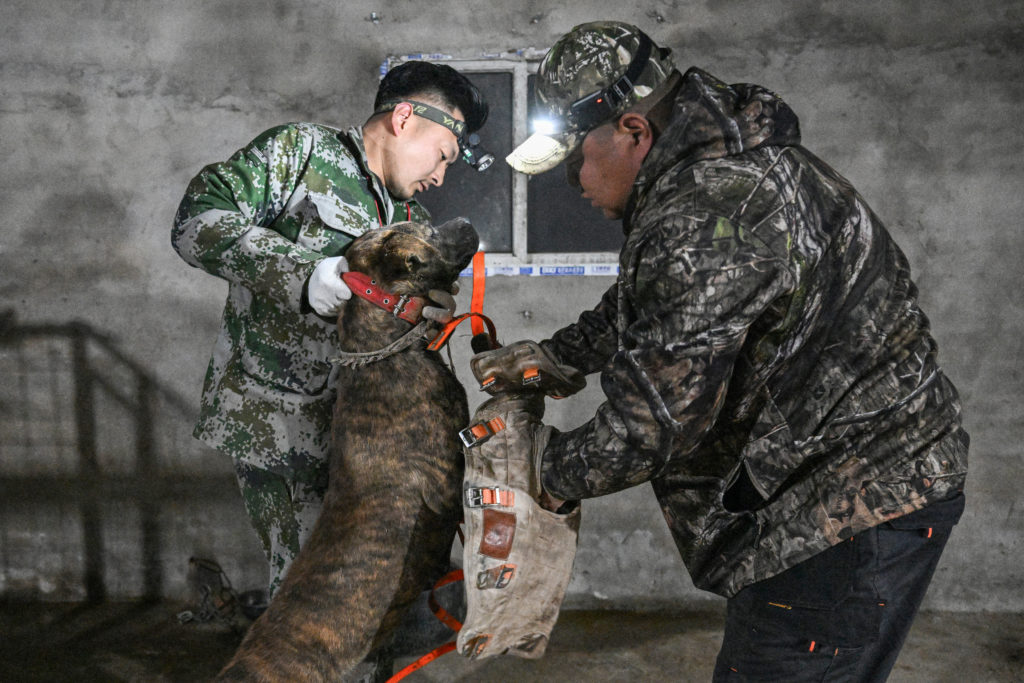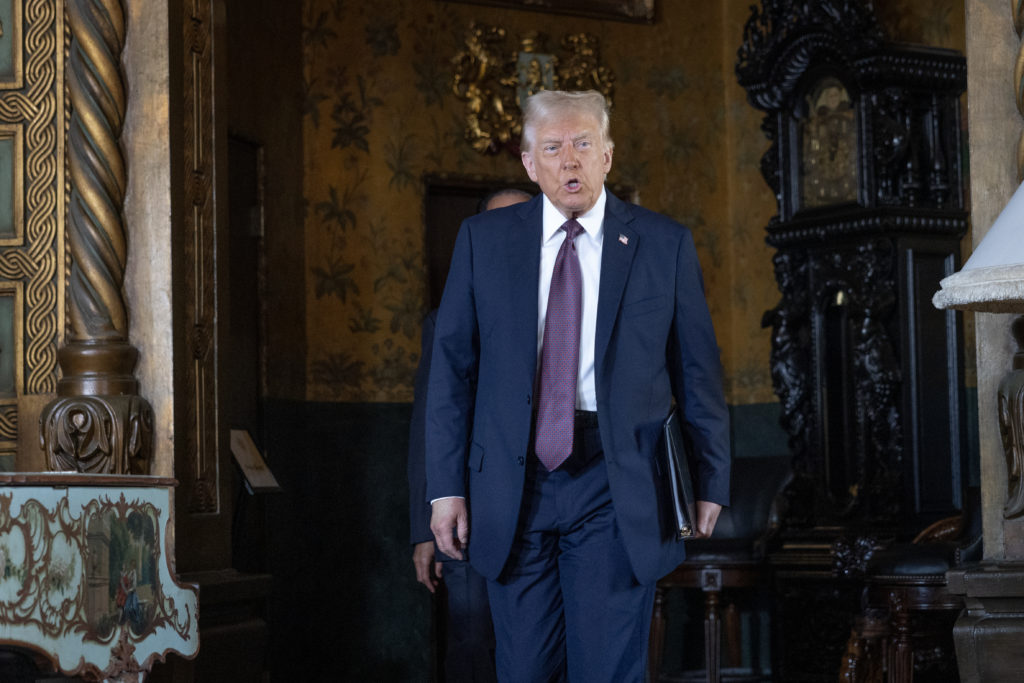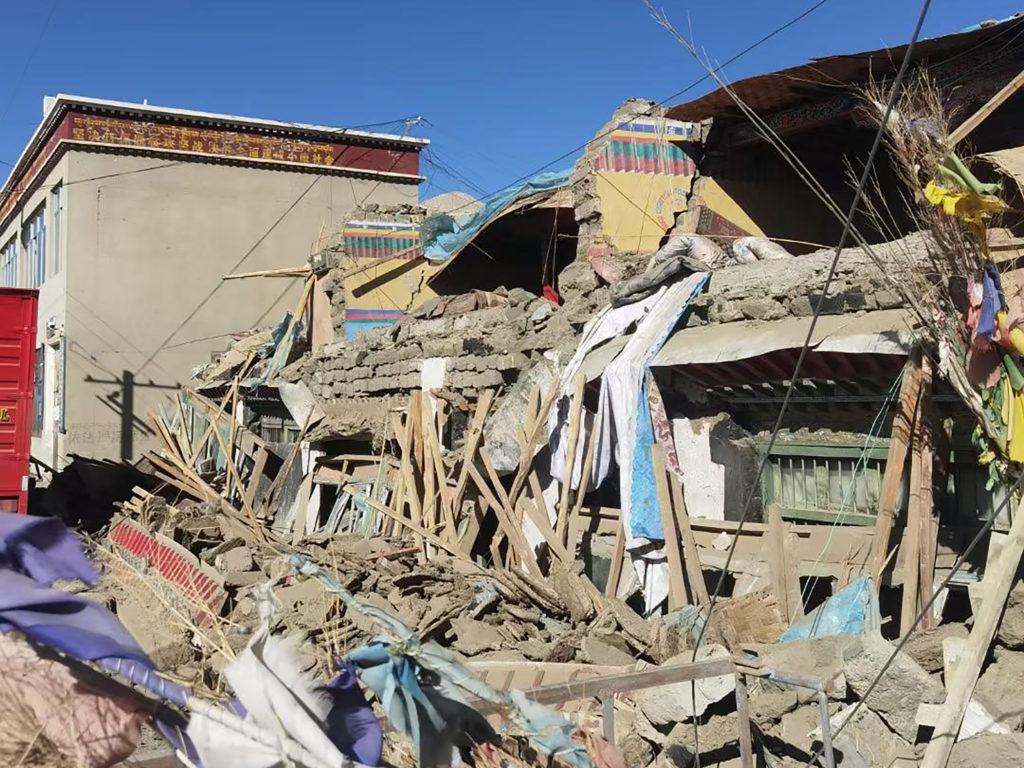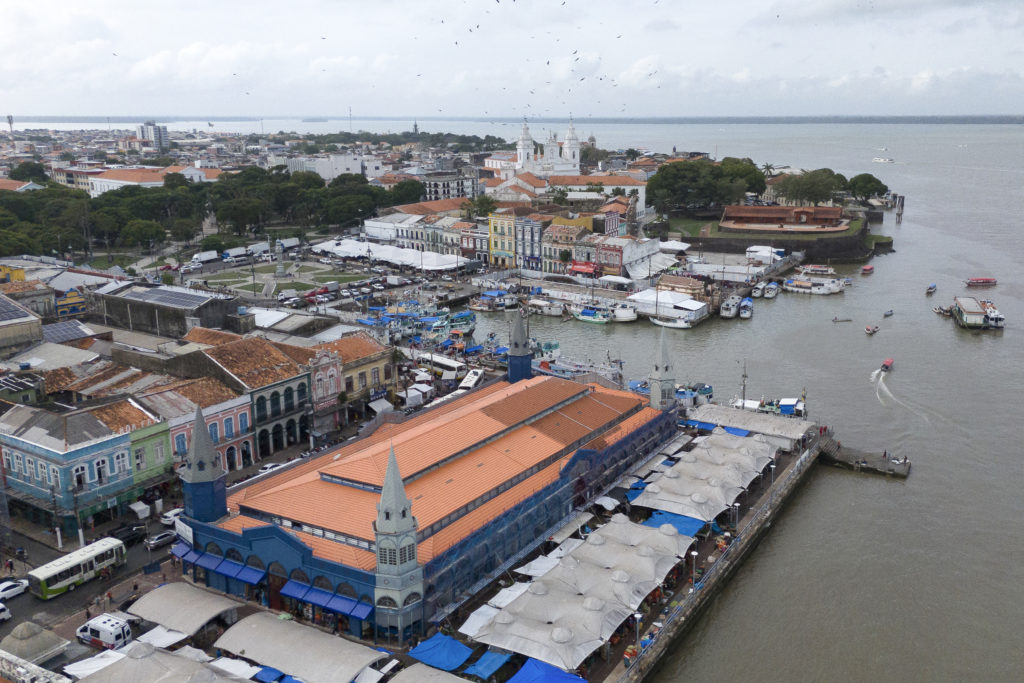Xiomara Castro, who will make history as Honduras’ first female president when she takes office on January 27, plans to ask the UN for help in fighting the corruption plaguing the Central American nation, and will urge Congress to repeal so-called “impunity” laws.
The 62-year-old Castro, who heads the leftist LIBRE party, told AFP in an interview she will work to rescind laws that “have covered up all the corruption” of recent years — a clear allusion to the government of her predecessor, Juan Orlando Hernandez.
“Honduras needs the heart of a woman,” she said, “of a woman who feels the people’s needs.”
Castro, the wife of ousted president Manuel Zelaya (2006-2009), answered AFP’s questions via a WhatsApp audio link.
Here is what she had to say on a variety of other topics:
– Migration and poverty –
Some 60 percent of the country’s 10 million inhabitants live in poverty, and thousands, since 2018, have headed north in hopes of finding work in the United States.
“Our commitment is to guarantee that in Honduras, in their country, people have the conditions for a dignified life: free, universal education for all children and young people, and free universal healthcare,” she said, without elaborating.
– The fight against corruption –
In 2016, after President Hernandez acknowledged his election campaign was partly funded with public moneys, the Organization of American States (OAS) sent an anti-corruption mission to Honduras, but it left in 2020 after a disagreement over renewing its mandate.
Castro wants to reactivate a high-level mission, this time headed by the United Nations, and says she has approached UN officials about doing so.
And she said her government would send “an initiative to Congress to repeal the laws that have sustained the dictatorship” — by which she means the Hernandez government. The state anti-corruption council refers to those regulations as the “laws of impunity.”
Castro specifically mentioned the so-called “law of secrets,” which classifies information on state purchases and “through which they have covered up all the corruption.” She also opposes a penal code reform that reduced penalties for money laundering.
– Relations with the US –
Washington, which has had a military base in Honduras since the 1980s, had called for peaceful and transparent elections, and closely followed the process.
Secretary of State Antony Blinken has indicated willingness to work with Castro, while she has described the bilateral relationship as “cordial.”
“One of the main issues is migration,” said Castro. “The defense of human rights, the safety of migrants, and above all of children and their families, is fundamental.”
– Fighting drug trafficking –
Drug trafficking has reached into the highest levels of the country — the current president’s brother, “Tony” Hernandez, is serving a life sentence in the United States for drug trafficking.
“We will fight narco-trafficking head-on,” Castro said. “We are going to guarantee the security of our borders, both in the air and at sea, so that neither narco-trafficking nor arms trafficking can take place in our country.”
– Disputed economic zones –
In 2013, the rightist National Party government promoted the creation of Special Economic Development Zones (ZEDE), largely autonomous territories within Honduras that are meant to promote investment.
Some groups in civil society, however, consider these zones unconstitutional — as “states within the state” where people evading extradition can take refuge. The UN has asked Honduras to “review” the practice.
“Immediately upon assuming the presidency, we are going to send the National Congress an initiative for the repeal of the ZEDE law,” Castro said.
– Her husband, the ‘best advisor’ –
After his election atop the rightist Liberal Party, Castro’s husband Manuel Zelaya and his government took a clear leftward turn, aligning with Hugo Chavez in Venezuela and Daniel Ortega in Nicaragua before being ousted by a civil-military alliance in 2009. Initially exiled, Zelaya returned to the country in 2011.
During Castro’s campaign she promised she would lead a government of “democratic socialism” and would draw on the experience of her husband — her “best advisor” — in the fight against poverty.
As the first woman to govern Honduras, Castro said, “I am committed to ensuring that women’s rights are respected.”
– ‘Readjusting’ the debt –
With total debt of nearly $17 billion — including $11 billion in foreign debt — “one of the first actions we will take will be to readjust that debt,” the new president said.
“We are not going to impose new taxes,” she said, though analysts say debt and the fiscal deficit could pose major challenges to the new government.

